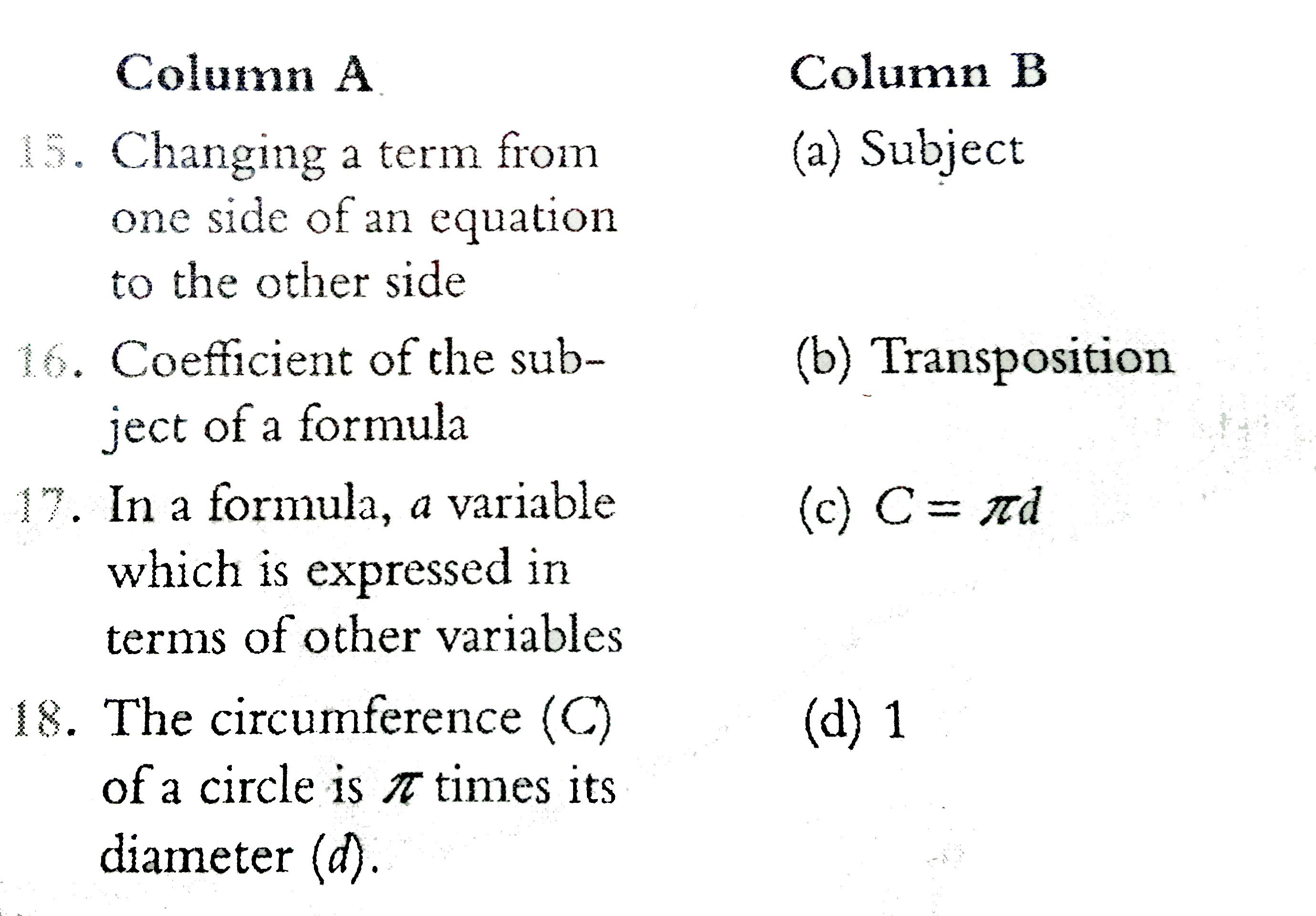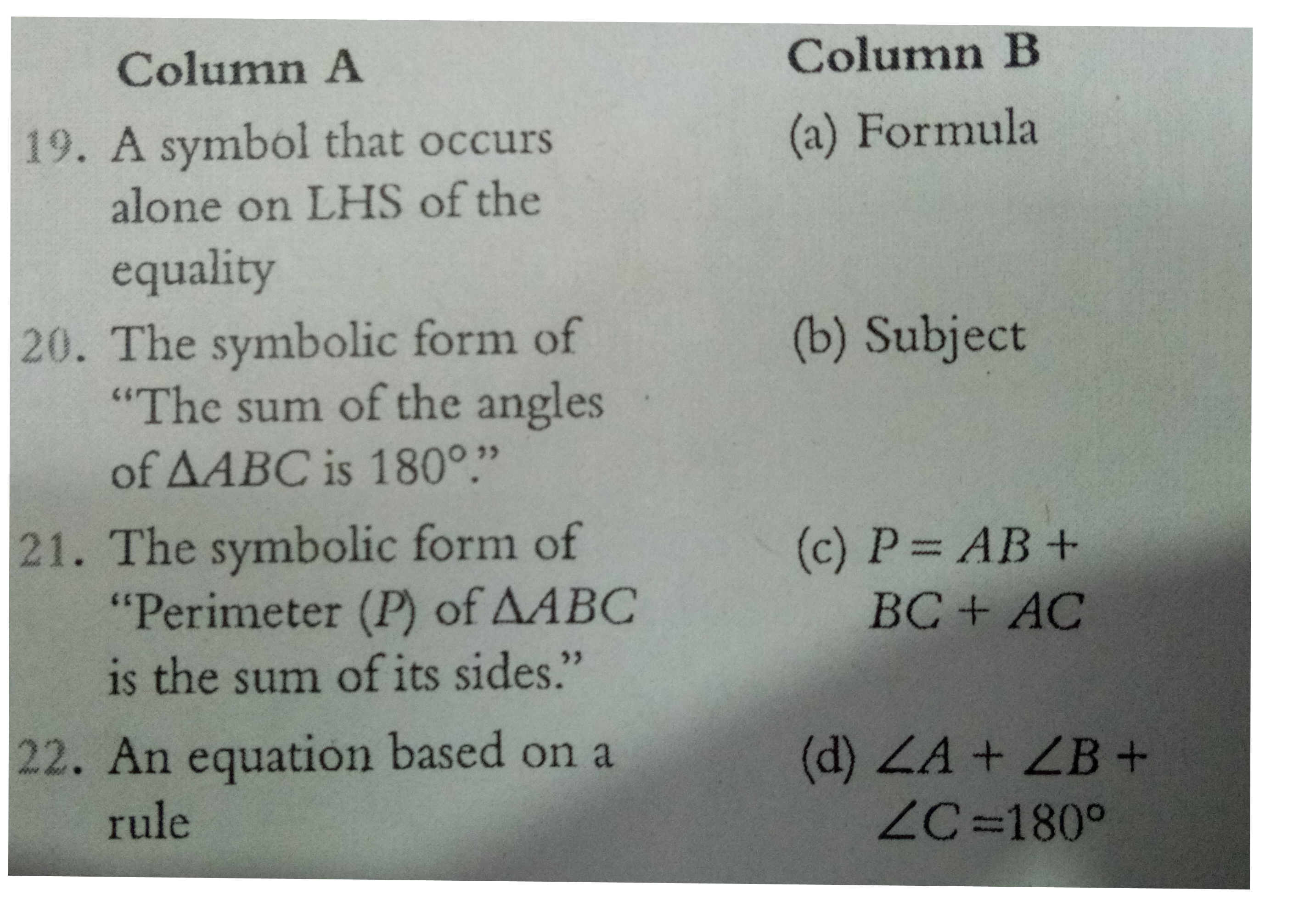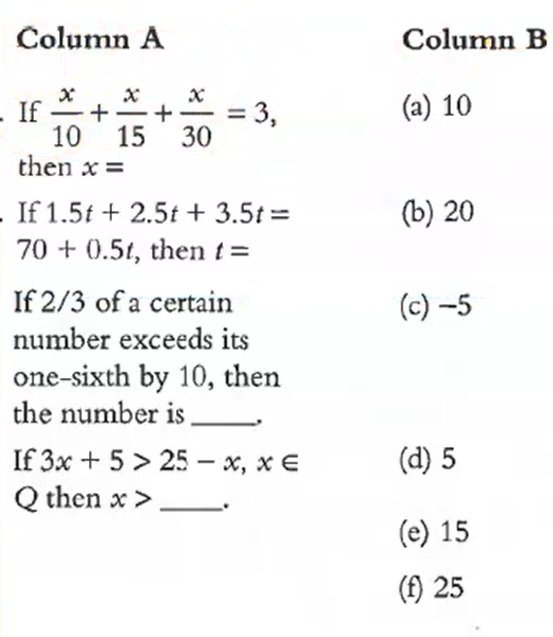X is a ranodm variable having the following of probability mass function

Then the value of E(x2) is : Solution in Tamil
2
6
4
3
The correct Answer is:b
Step by step video, text & image solution for X is a ranodm variable having the following of probability mass function Then the value of E(x^(2)) is : by Maths experts to help you in doubts & scoring excellent marks in Class 12 exams.
Topper's Solved these Questions
- BOOK - PREMIERS PUBLISHERSCHAPTER - PROBABILITY DISTRIBUTIONSEXERCISE - EXERCISE 11.620videos
PROBABILITY DISTRIBUTIONS
- BOOK - PREMIERS PUBLISHERSCHAPTER - ORDINARY DIFFERENTIAL EQUATIONS EXERCISE - PROBLEMS FOR PRACTICE (ANSWER THE FOLLOWING QUESTIONS )22videos
ORDINARY DIFFERENTIAL EQUATIONS
- BOOK - PREMIERS PUBLISHERSCHAPTER - THEORY OF EQUATIONSEXERCISE - Problems for practice (Answer the following)21videos
THEORY OF EQUATIONS
Similar Questions
Let X be random variable with probability density function
f(x)={2x3x≥10x<1
Which of the following statement is correct01:37View SolutionFind the order and degree of the following differential equation
y''=(2+y')3406:07View SolutionIf α and β are the roots of 2x2−5x+3=0 form the equation whose roots are α2 and β2
02:11View SolutionHow many lines of symmetry does the above figure have ?
01:31View SolutionWhich of the following are correct chain isomers of butane ? (i)
02:45View SolutionDetermine the point of symmetry of a regular hexagon.
02:17View SolutionDtermine the images of the following figure about the given line :
05:41View SolutionMatch the following Column A to Column B
 02:10View Solution
02:10View SolutionMatch the following Column A to Column B
 02:17View Solution
02:17View SolutionMatch the following Column A to Column B
 02:10View Solution
02:10View SolutionThe inequation represented by the graph given below is :
04:23View SolutionThe inequation that best describes the graph given below is _________
01:13View SolutionThe inequation that best describes the following graph is _________
01:50View SolutionWhich inequations represent the shaded region in the given figure
01:49View SolutionIn Fig, find the value of x.
ltimg src="https://d10lpgp6xz60nq.cloudfront.net/physics_images/PS_MATH_IX_C12_S01_032_Q01.png" width="80%"gt02:34View SolutionAt x=0, value of (dy)/(dx) is : ltimg src="https://d10lpgp6xz60nq.cloudfront.net/physics_images/ALN_PHY_R04_E01_024_Q01.png" width="80%"gt
01:44View Solution

